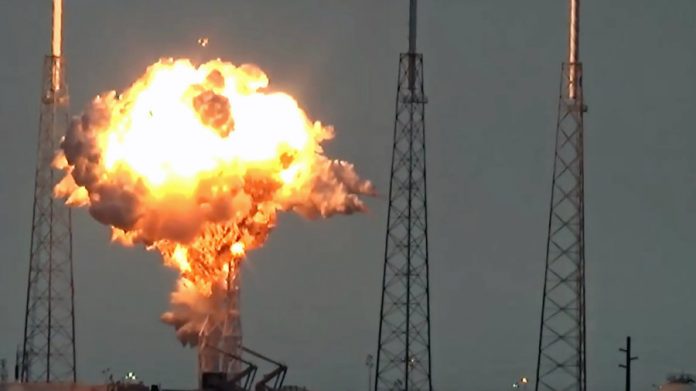
Israel’s Spacecom said in a conference call with reporters that it could seek $50 million or a free flight from Elon Musk’s SpaceX. The IAI made the announcement days after its Earth communications satellite Amos-6 was destroyed in the explosion of the Falcon 9 Full Thrust rocket test on September 1.
The Israeli communications satellite operator added that it could also $205 million from Israel Aerospace Industries (IAI), which built the AMOS-6 satellite. SpaceX, worth more than $10 billion, hasn’t disclosed any contract or insurance terms.
In a statement to the Tel Aviv Stock Exchange, Spacecom said the loss will have great repercussions on the company. Its shares have already suffered, dropping 8.9% the day of the incident, and another 34% yesterday. Its equity is expected to decline by $30 million to $123 million as well.
https://www.youtube.com/watch?v=AIMv7naqpPE
Plus, Beijing Xinwei Technology Group had agreed last month the $285 million purchase of Spacecom. But it depended upon Amos-6’s successful launch and operation. Xinwei declined to comment if the incident means the deal is off.
Anomaly destroys rocket and satellite
Last Thursday, SpaceX’s Falcon 9 Full Thrust rocket and its Amos-6 payload were lost in a launch pad explosion during propellant fill prior to a static fire test. The loss will affect SpaceX, Facebook, Spacecom and Eutelsat.
It was the 29th launch in 6 years for the rocket. The previous 28 launches had resulted in 26 full mission successes, one partial success as the main mission was completed, and one failure. It happened in June 2015 and destroyed a load of cargo headed for the International Space Station (ISS).
In a statement, Elon Musk’s aerospace company confirmed that an anomaly was the cause of the incident.

The irregularity originated around the upper stage oxygen tank during the standard pre-launch test for the AMOS-6 mission. It occurred while the first and second stages of the Falcon 9 were being filled with fuel.
A significant impact for all parties involved
In January 2013, Spacecom announced it had signed a contract with SpaceX for the launch of Amos-6 on the Falcon 9. The satellite, after tests, was intended to be launched on Flight 29 of SpaceX’s Falcon 9 to orbit on September 3.
In October 2015, Facebook and satellite operator Eutelsat agreed to pay $95 million over five years to lease the Ka-band spot-beam broadband capacity on Amos-6. The device was going to provide service for Facebook’s Internet.org and a new Eutelsat subsidiary focusing on sub-Saharan Africa.
Facebook founder Mark Zuckerberg said in a post he was disappointed for the accident but that his company will remain committed to connect everyone around the world. Meanwhile, Eutelsat estimated on 50 million euros the potential impact on its revenues by 2019. For its part, SpaceX had planned nine more missions for the Falcon 9 before the end of the year.
Source: NY Daily News










